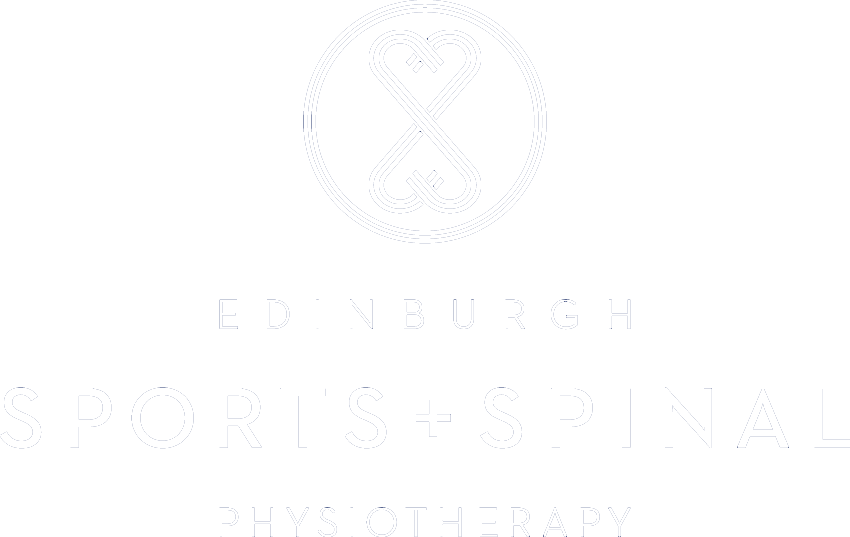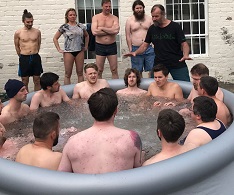Why does your body adapt with sport, exercise and training?
Exercise and training stimulates your body to adapt, thus making you stronger, faster and fitter. After exercise adaptations will occur, e.g.swimming, running, weightlifting, or playing sport, the body may feel sore or uncomfortable. This is simply the body reacting and a sign that the body has been through some stress. Your body therefore needs to repair and rebuild in order to be more efficient for your next bout of exercise or sporting performance. Regular exercise and thus stressing your body continuously, will therefore stimulate the natural proess to help you become stronger, faster, fitter.
How much can the body cope with?
There is a limit to how much the body can be stimulated, repair and improve. Training with a lack of rest and recovery may lead to “overtaining”.
There is a limit to how much the body can be stimulated, repair and improve. Training and playing hard, without rest and recovery strategies, may lead to ‘overtraining’. Overtraining and a lack of recovery may lead to regression, thus undoing all of your hard work. Not only this, it may also lead to a number of other negative symptoms such as lethargy, insomnia, increased illness / susceptibility to infection, low mood and possibly weight gain.
Why do we need recovery strategies following sport?
It has been shown in research and through experience, that performance will enhance following relative rest from difficult training sessions.
Adequate rest and recovery strategies will simply allow athletes to return to their normal state of:
- Health
- Mind
- Strength
There are a number of recovery strategies that aim to accomplish the following:
- Reduce inflammation
- Athletes to be able to perform again when there is a short turn around for a game
- Compete to the best of their ability
- Feel psychologically refreshed
Recovery methods
Ice Baths
An ice bath/ cold-water immersion/ cold therapy, is a method used following intense performance, training session, resistance training or plyometrics. An athlete would normally sit or stand in a container, and submerge a substantial part of their body in cold water. The greater the depth of water, the greater the water pressure placed on the limbs, which further assists in recovery physiology.
Ice Baths
- Reduces muscle soreness
- Manage inflammation and its symptoms
- Maintains muscle power when recovery time is limited
- Maintains in-game aerobic performance
Guidance protocols on ice baths?
- Temperatures between 10-15C
- Remaining immersed for between 5-15 minute bouts
- Immersing the body in standing to the level of the shoulders appears to be more effective than immersing to the waist.
Massage
- A widely used recovery method
- Increases blood flow
- Aids to remove metabolic waste products
- Reduces muscle soreness
- Improves the psychological aspects of recovery
Hot cold contrast
Contrast water therapy has been said to help muscle strength following eccentric resistance training and intermittent aerobic activity. The best protocols suggest alternating temperatures of 8-15C in bouts of 1-2minutes followed by temperatures of 38-42C in bouts of 1-4 minutes, repeated 5-7times.
Ice packs and compression
Ice packs can be directly applied to the affected area or injury to help recovery. If you have suffered a soft tissue injury icing the area for 10 – 20 minutes every hour.
Compression tights/pants, socks and shirts may also help recovery. Especially if you have long drive following a match, run or event.
Sleep
Sleep is extremely important as it affects the quality of training and performance. More and more research is being done about this subject all the time.
Intense training can put athletes at risk of disturbed sleep patterns. For example, extensive training schedules, travelling, pressures that competition creates. Therefore sleep optimises athlete recovery via consistent sleep routines and sleep length.
Watch your sleep hygiene:
- Limit daytime naps to 30 minutes
- Reduce stimulants close to bed time e.g. caffeine
- Avoid foods that may disrupt sleep e.g. fizzy drinks, rich or fatty foods which may lead to heartburn.
- Eliminate technology before your bedtime – artificial light stimulates your brain
Stretching and warm down
Often overlooked in many teams at all levels. Players are very guilty with finishing a game and heading straight to the changing rooms for a beer. Just a small amount of exercise and stretching can have a massive impact on your body and its ability to recover in the following days.
Foam Rolling or Using a Ball
Foam rolling is a highly debated recover method. A lot of professionals will argue whether it is an effective recovery method or better to help warm up the muscle. The evidence is still unclear as to its benefits, however it is a simple method of self-massage that increases localised blood flow, as well as decreasing muscle tone / taut and tender bands of muscle.
Hydration and Nutrition
Staying hydrated is very important not just for your health but athletic performance. Research has shown that athletic performance diminishes when we are dehydrated. You should know that the research behind “carbohydrate sports drinks” is extremely limited.
Water, milk and beetroot juice are said to have possibly greatly hydration potential than commercially made drinks..
Although research is limited, a lot of athletes feel they gain benefit from adding a number of supplements or superfoods to their diets.
- Oily fish or fish oil tablets (make sure they are good quality)
- Blueberries and raspberries
- Beetroot
- Nuts
- Leafy greens
- Garlic, turmeric, ginger
- Tomatoes
Active Recovery
Activity that is less intense and low volume for example:
- Swimming
- Cycling
- Walking
- Pilates/Yoga
Why is all this important?
If you are a ‘couch to 5k person’, a weekend warrior, or a highly trained machine wanting to take your performance to the next level you, it is worth taking the time to optimise your recovery processes. You will recover quicker so you can do more in the gym and on the training field.
If you can do more you, you will improve and therefore gain a great deal of benefit and enjoyment.
Also, the good news is, that after a few ice baths the body starts to adapt, and the exposure gets less intense!
If you are still suffering from an injury or pain you may need to see a physiotherapist. If you have an injury, it is important to seek the right advice as each recovery method needs to be used at the right time.
We would love to help you overcome your injury and help you become pain free. Please call us on 0131 235 2354 or book online HERE.

